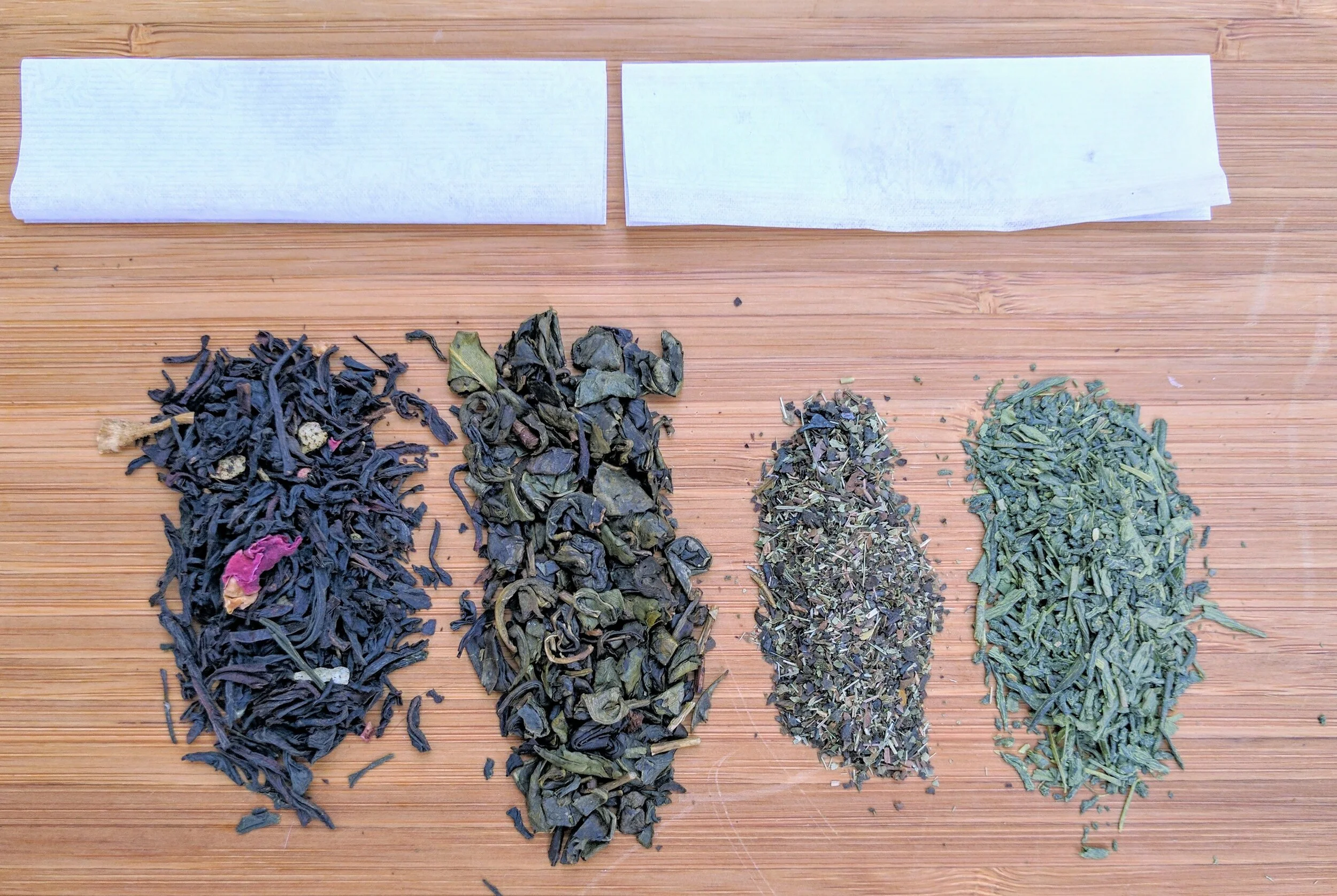Tea 4:20 Edition: Smoking Tea
Smoking tea. There has been some information circulating the internet about a growing trend of smoking tea from tea-bags. Chances are someone has mentioned this to you at some point, or talked about smoking other herbs and spices in your kitchen (especially if you’ve ever been a teenager). After all, clove cigarettes are a thing right?
Doing a quick search will show you that there is a bit of information online about the healthful effects of smoking tea leaves. I do not condone this, I would not try this if I were you, I’m not telling you to try this — smoking anything is harmful to your health.
But…
I decided to investigate by trying this out myself. To this day, people ask us if smoking tea is okay.
The most common questions include:
Is it “good” for you? Could this be a substitute for drinking it?
Do you absorb caffeine? What about theanine?
Does it help you quit smoking cigarettes/cannabis?
Do you get high?
Does it relax you?
Is it safe?
I chose four different teas to smoke, on separate days, to gauge how I felt. I chose two black teas and two green teas: a basic black tea bag, a loose leaf blended lapsang souchong (Zheng Shang Xiao Zhong) with herbs and fruit, an orthodox green tea from Darjeeling, and a sencha from Japan. To be clear, we are talking about actual tea, from Camellia sinensis, and not any of the other varied herbs and plants out there that people might also like to smoke.
I don’t smoke tobacco anymore (I used to) but I still remember how to roll a cigarette. The consistency of the leaves was difficult to roll, but I managed. All in all, the smoke of the two black teas was smooth but heavy, kind of like pipe tobacco. The tea bag made me fairly lightheaded. They were both aromatic and the smokiness of the lapsang souchong especially reminded me of tobacco. The tea didn’t burn very well due to uneven leaf size, moisture content, etc. The Indian green was herbaceous but also smoother than you’d think. The sencha has quite harsh and didn’t make me feel good at all, I got a bit nauseous afterward. All in all, they all left me with a very heavy feeling in my chest and my throat felt coated in a kind of film that was unpleasant. My tongue also went slightly numb.
Here’s what I have to report on the effects of smoking tea leaves, to address the questions above:
Is it safe?
After a bunch of searching, I found many people asking if it is safe to smoke tea leaves. My answer to that is, sure it’s just about as safe as smoking anything, which is, not very good for you at all. It’s not dangerous in the immediate like it would be if you were smoking, say, arsenic. Again, smoldering carbon material releases carbon monoxide. This can be very harmful to your health in the long run.
Does it relax you? Does it get you high?
People who have tried this have claimed to feel relaxed after doing so. I felt more numb than relaxed. I can report that smoking tea does not get you high, however, you are inhaling carbon monoxide which can make you lightheaded. After all, how could it make you high? Which, if any, of the psychotropic compounds in tea would make you hallucinate? The two most prevalent of these compounds, caffeine and L-theanine, do not cause hallucinatory effects, even in very high doses. Too much caffeine does lead to nausea and dizziness, a common side-effect of smoking tea.
This sentiment also keeps popping up in forums and article comments in relation to getting tea-high: “Green tea is an agonist of the CB1 receptor in the brain, cannabinoid 1. This is the same receptor that is also a receptor for THC delta 9, found in cannabis.”
What is this supposed to indicate? Different neurotransmitters binding to the same receptor don’t necessarily produce the same effect. Also, it’s not clear why smoking versus drinking tea would produce different effects at the cannabinoid receptors. In effect, just because compounds in tea may interact with these receptors, doesn’t mean it’s getting you “high”. The role of the cannabinoid receptors is, after all, to regulate mood, memory, appetite, etc.
Do you absorb caffeine or L-theanine?
It seems that you do. Caffeine vape pens have hit the market as well, but this means that you need to be more careful with highly caffeinated tea since it’s not (new word, not modulated) like in a vape pen, and as mentioned above, can lead to nausea and dizziness. It’s not clear by any study I’ve read that theanine can be absorbed when inhaled in the form of smoke.
Could it help you quit smoking?
It seems some have reported this to be the case, but as someone who used to smoke and doesn’t anymore, I find it fairly (word choice) dubious that to quit smoking one substance you need to smoke another. I think the best way to quit smoking… is to quit smoking.
Is it good for you?
This needs to be stated clearly: smoking tea will never be as good for you as drinking tea. Period. End of story. Even if you were to take out the monumental factor of carbon monoxide being bad for you, there just isn’t any evidence that you are absorbing beneficial compounds by burning them. In fact, it is self-evident that this process destroys those compounds. Smoke may have a direct pathway to the bloodstream, but this isn’t the goal of good tea.
Good tea should be drunk because it tastes good and is good for you.
Everything else is ancillary.
If you would like to learn more about enjoying tea the right way, visit our Hacker’s Guide to Tea.
